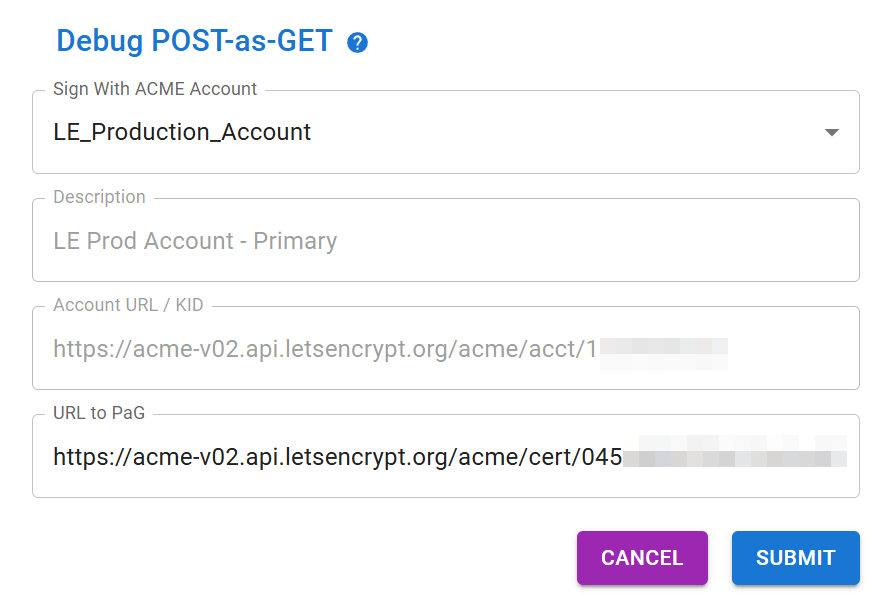ACME Accounts
The ACME Accounts section provides management of accounts.
View All
The initial page for ACME Accounts is a list of all of the accounts on the server.
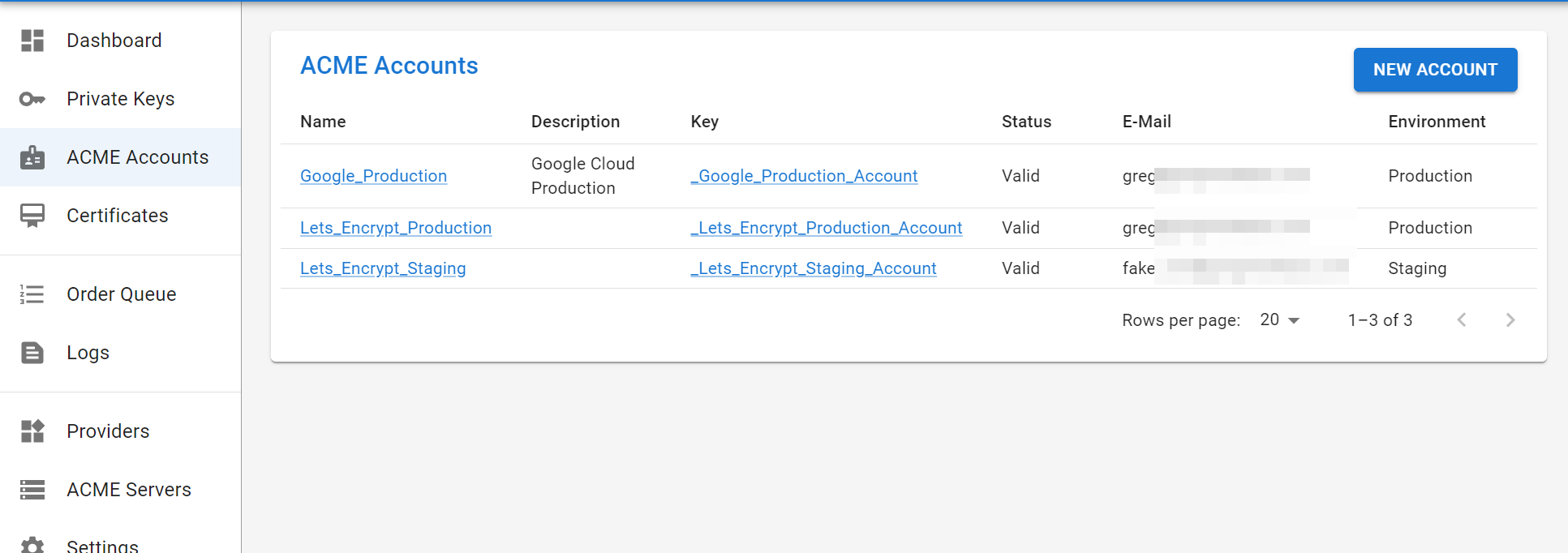
New Account
New account is used to create (or import) an account.
Input a name for the account and select the already generated (or imported) key for the account. Most servers will create an account if an account does not already exist for a specific key. If you're re-using an account, import the account key first under the Private Keys tab.
ECDSA P-384 keys are generally preferred for accounts and the option to
Disable API Key should be checked for account keys (so they cannot be
accessed by clients, even with the API Key). This extra step is likely
unnecessary but there is no harm in a little extra security.
The account must be registered before it can be used for certificates. (See next section for details.)
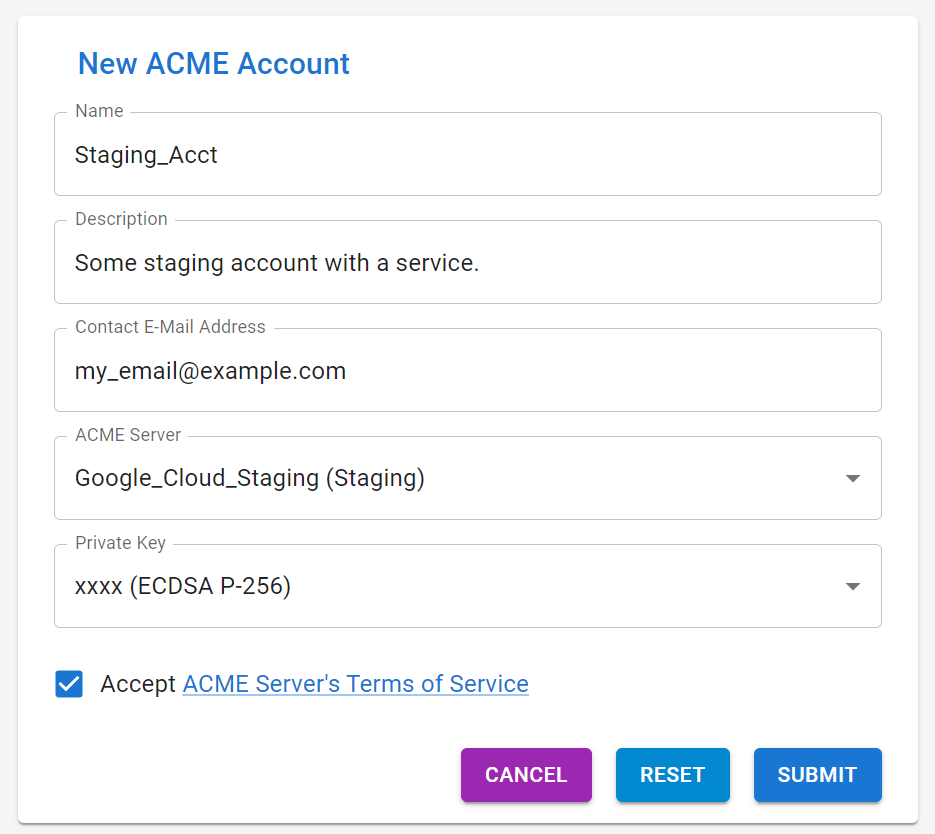
Account Registration
After adding a new account, you will be automatically directed to the
account's page. This page will contain a Register button that must be
utilized before the account is truly 'live' and available for use.
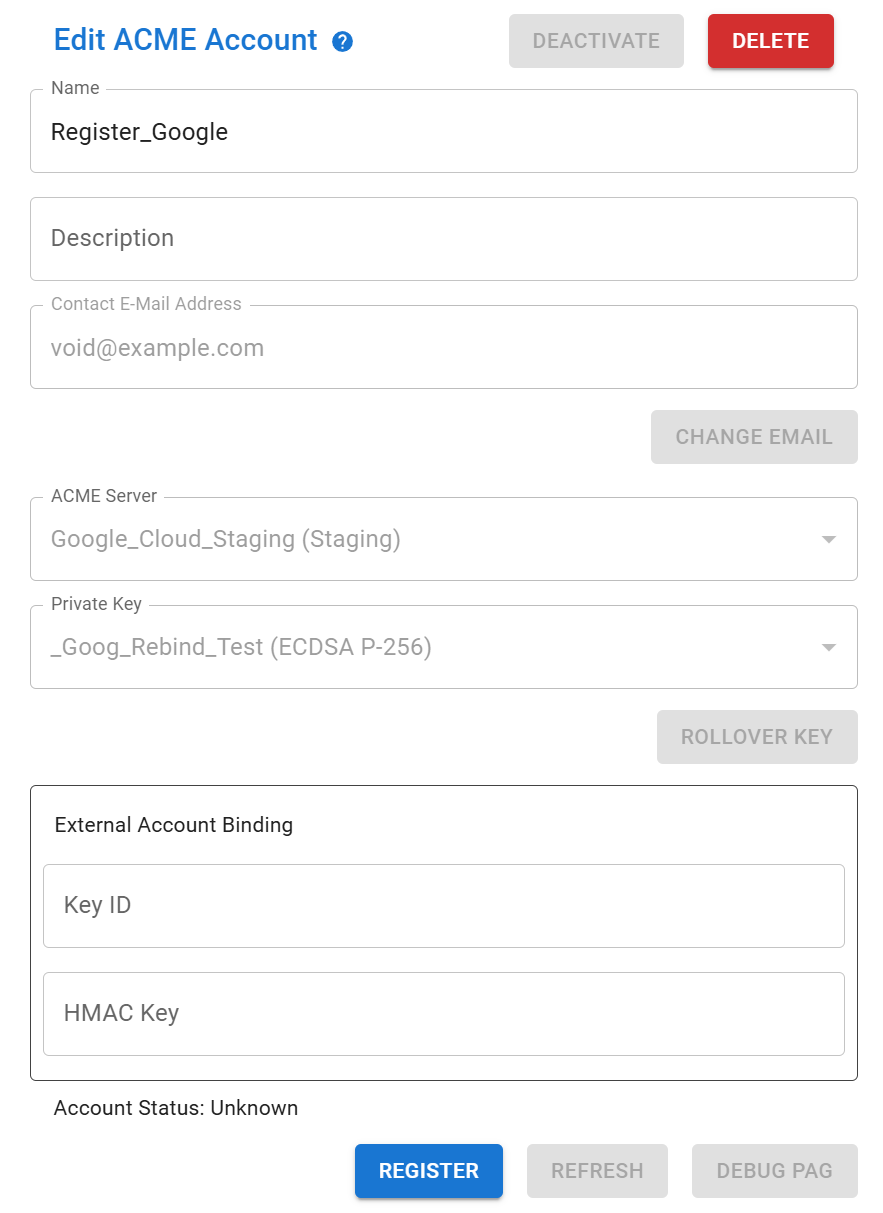
If your ACME Server requires External Account Binding, additional fields will be
displayed by Cert Warden for you to input the related values. If this is not required
by your ACME Server, these fields will not be shown. In the event you are re-adding
an existing account that was already bound, you can leave the additional EAB fields
blank.
After clicking register you should see Account Status: Valid. Additionally, there
will be an information icon next to the header Account URL:. Clicking this icon
will show you the account's URL and a copy button. This is useful if you are creating
detailed CAA records which only authorize specfic account URLs to issue certificates.
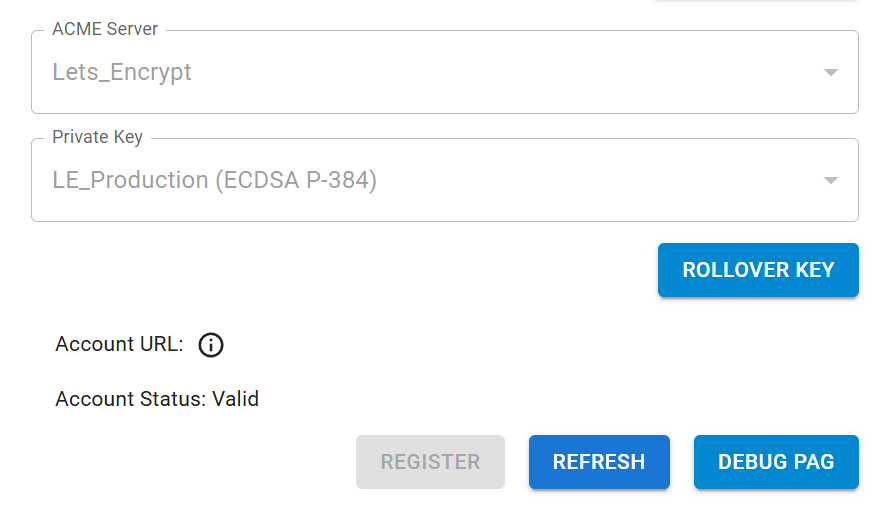
Edit Account
The edit account page permits editing of basic information like the account name and description. It also allows a few different functions.
Deactivate disables the account with your ACME provider. This generally cannot
be undone and has a high probability of causing you headaches unless you've
carefully migrated everything off of the specific account. Only use this
option if you have a very specific need to do so.
Change Email is straightforward and allows you to change the account contact.
Rollover Key allows changing the private key associated with an account. This
is necessary in the event of potential or actual key compromise.
A compromised key gives the attacker complete control over the account. Always rollover your key if you suspect even the smallest possibility of compromise.
Refresh sends a request to the ACME Server to get the most up-to-date information
about the ACME Account, from the Server. This button is generally not needed.
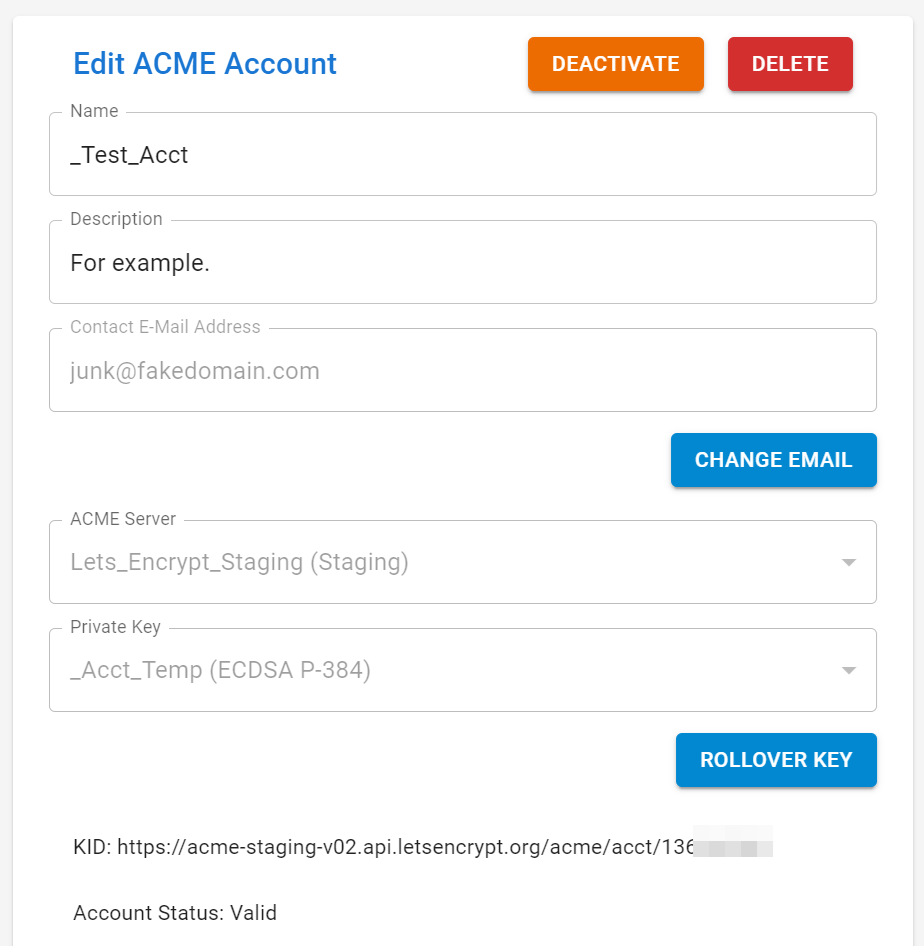
Debug PaG
The Debug POST-as-GET (PaG) page allows manual fetching of resources using an ACME Account.
The ACME specification (RFC 8555) defines a secure method to GET resources by POSTing to the resource with a JWK instead of GETting the resource (section 6.3). This page allows sending these secure POST-as-GET requests to a URL of your choosing, using the selected account. This page then displays both the body of the resulting response as well as the headers returned by the ACME Server.
This can be useful for troubleshooting, reviewing headers for things like alternate certificate chains, fetching those alternate chain links, or any number of other tasks that can be aided by the ability to manually review the plethora of resources that are used throughout the ACME process.
